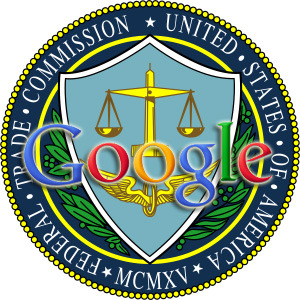Report: Majority Of FTC Commissioners Want Antitrust Action Against Google, But Vertical Search Might Not Be Issue
Reuters is reporting that majority of those on the US Federal Trade Commission believe an antitrust case should be brought against Google. But if action comes, it doesn’t seem likely to involve Google being found to “favor” its own “vertical” search engines like local or shopping over competing ones. Apparently four of the five FTC commissioners […]

Apparently four of the five FTC commissioners are now convinced that “Google illegally used its dominance of the search market to hurt its rivals.” Another commissioner is not similarly convinced. The identities of the commissioners in favor of the action against Mountain View were not revealed.
Decision by the End of the Year
Several weeks ago FTC chairman Jon Leibowitz had said that a decision about whether to pursue an antitrust case or comparable remedial action against Google would be forthcoming by the end of the year.
Google is currently negotiating an antitrust settlement with the European Commission over four areas of “concern” identified earlier this year after an extended investigation and comment period in Europe. Google also faces separate antitrust related investigations several US states, including California, New York and Texas.
Anti-Google lobbying consortium FairSearch.org has lead the charge in the US and to a lesser degree abroad against the company. Google rival Microsoft is one of the principals of that group. (However FairSearch member Kayak told CNBC that Google’s travel search results have had “no impact” on the company.) Other, smaller companies and competitors have also come forward to file complaints in both Europe and the US against Google.
The balance of opinion among US legal scholars I’ve read appears to be that meeting the specific burdens and legal requirements of an antitrust case against Google would be challenging. Google’s market share alone is not enough to make the case. There are numerous findings that must occur and tests that must be met.
Protecting the Public or Google’s Competitors?
Depending on how one “scopes” or defines Google’s market, it could be seen as more or less competitive. In the broadest sense Google is competing on multiple fronts against Apple, Microsoft and more recently Facebook and Amazon. At the highest level its markets look pretty dynamic and competitive.
The FTC is supposed to advance consumer interests rather than protect or promote the interests of Google’s specific competitors. Preserving competition is a mechanism for keeping markets working and healthy. However many of Google’s competitors have acted as though antitrust rules were designed to protect them rather than the public at large.
Earlier this year the FTC hired career Washington lawyer Beth Wilkinson to potentially bring a case against Google. Wilkinson is a veteran antitrust attorney and former Justice Department official with an unbeaten trial court record. The move appeared to be an early signal that the FTC was getting serious about its potential case against Google.
If the FTC decides to proceed against Google the agency could try to settle in much the same way that the European Commission is currently negotiating with Google. However, absent such a settlement, formal litigation would follow (as it did in the Microsoft case). That remains a risk and possibility in the European case as well.
Postscript From Danny Sullivan: Most notable to me from the Reuters report is that the FTC doesn’t appear to be finding that Google is somehow abusing its market dominance by “favoring” its own vertical search engines such Google Places or Google Shopping over competitors like Yelp or Nextag.
Nothing about this is mentioned in the report. Rather, the FTC seems more concerned about ensuring that ad campaigns can be made “portable” from Google to competitors like Bing:
The one source said the FTC commissioners have given weight to other complaints that Google refuses to share data that would allow advertisers and developers to create software to compare the value they get on Google to advertising spending on Microsoft’s Bing or Yahoo.
Postscript II: Courtesy of Gary Price, you can watch the full 2.5 hours of a recent conference on Google an antitrust law, sponsored by the conservative leaning American Enterprise Institute in Washington, DC and recorded by C-Span. You’ll get a very concentrated dose of the obscure and technical nature of antitrust law.
Opinions expressed in this article are those of the guest author and not necessarily Search Engine Land. Staff authors are listed here.
Related stories
New on Search Engine Land